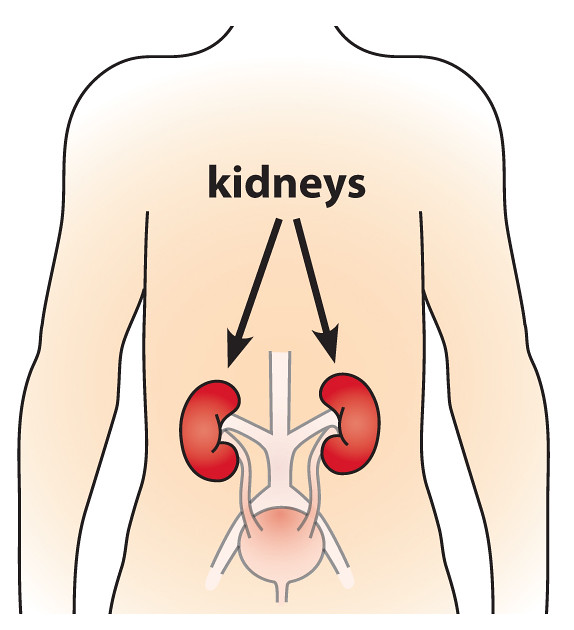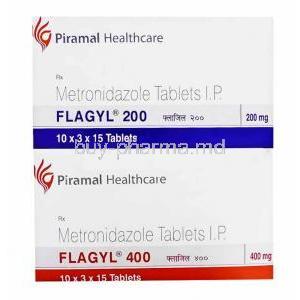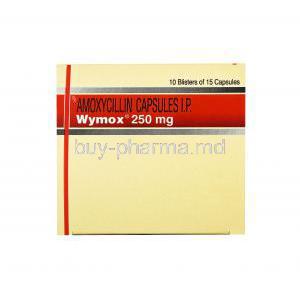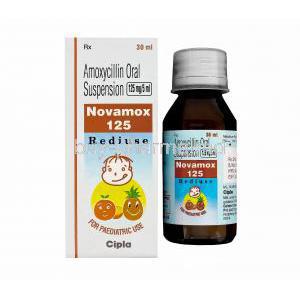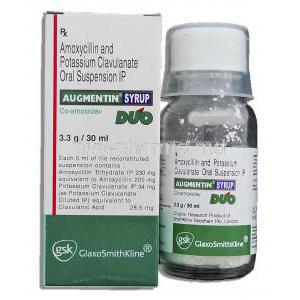Dax La, Cefadroxil/ Probenecid
- Introduction to Dax La, Cefadroxil/Probenecid
- Composition and Mechanism of Action
- Approved Uses
- Off-Label Uses
- Dosage and Administration
- Cefadroxil side effects
- Rare and Severe Side Effects
- Interactions with Other Drugs
- Contraindications
- Cefadroxil warnings and Precautions
- Careful Administration
- Special Considerations for Elderly Patients
- Use in Pregnant Women and Nursing Mothers
- Administration in Pediatric Populations
- Overdosage
- Storage and Handling
- Handling Precautions
Introduction to Dax La, Cefadroxil/Probenecid
Overview of Dax La
The Dax La medication is specifically formulated to treat infections by combining Cefadroxil and Probenecid to offer a two-fold treatment that effectively targets different types of infections with accuracy and efficiency.
Role of Cefadroxil and Probenecid in the Formulation
Cefadroxil is known as a first-generation cephalosporin antibiotic that's famous for its effectiveness in stopping the growth of bacteria through its action on cell wall production. Probenecid works to improve the effectiveness of this antibiotic by decreasing its elimination through the kidneys and ensuring that higher levels of the medication remain in the bloodstream for periods.

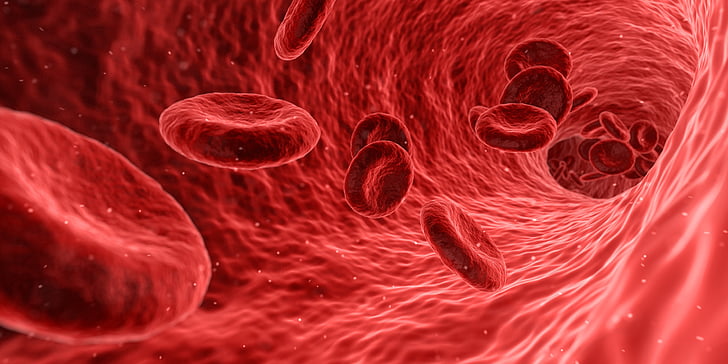
Key Therapeutic Applications
- Treatment of upper and lower respiratory tract infections
- Management of skin and soft tissue infections
- Control of recurrent urinary tract infections
Historical Background and Development
The creation of Dax La showcases a strategy for combating resistance by blending two medications together – drawing on years of research in treating infectious diseases to achieve better results.
Composition and Mechanism of Action
Active Ingredients and Their Roles
The main function of Cefadroxil is to kill bacteria, and Probenecid enhances its absorption in the body to improve its effectiveness against infections.
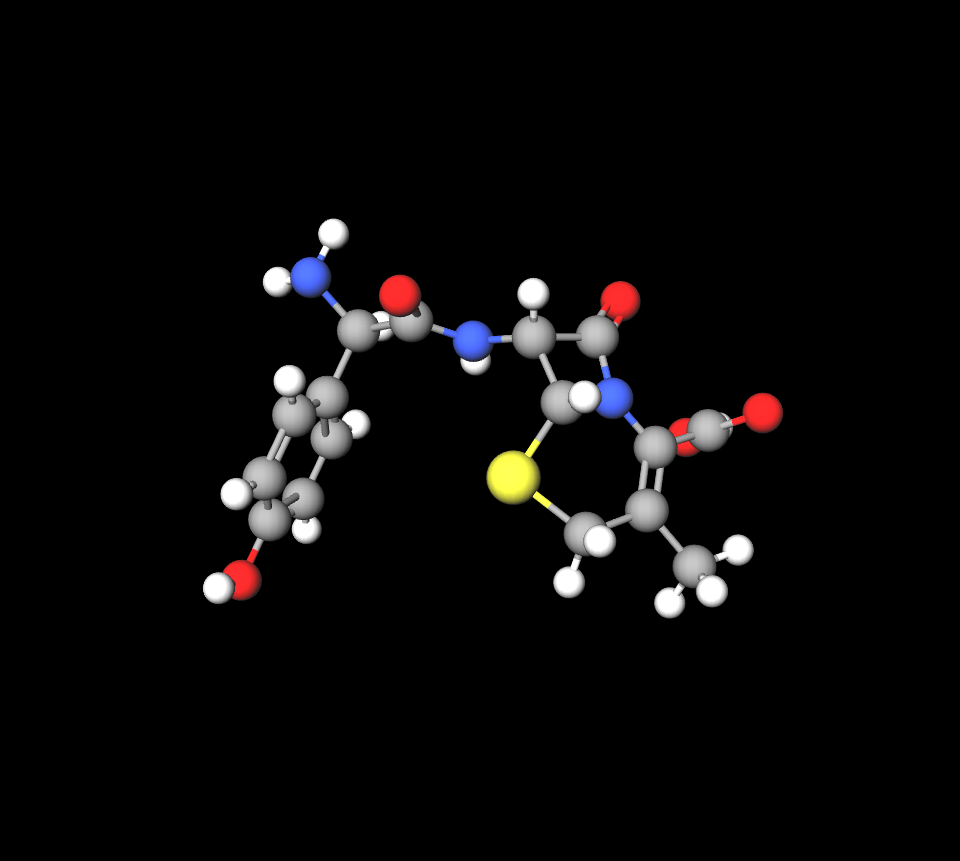
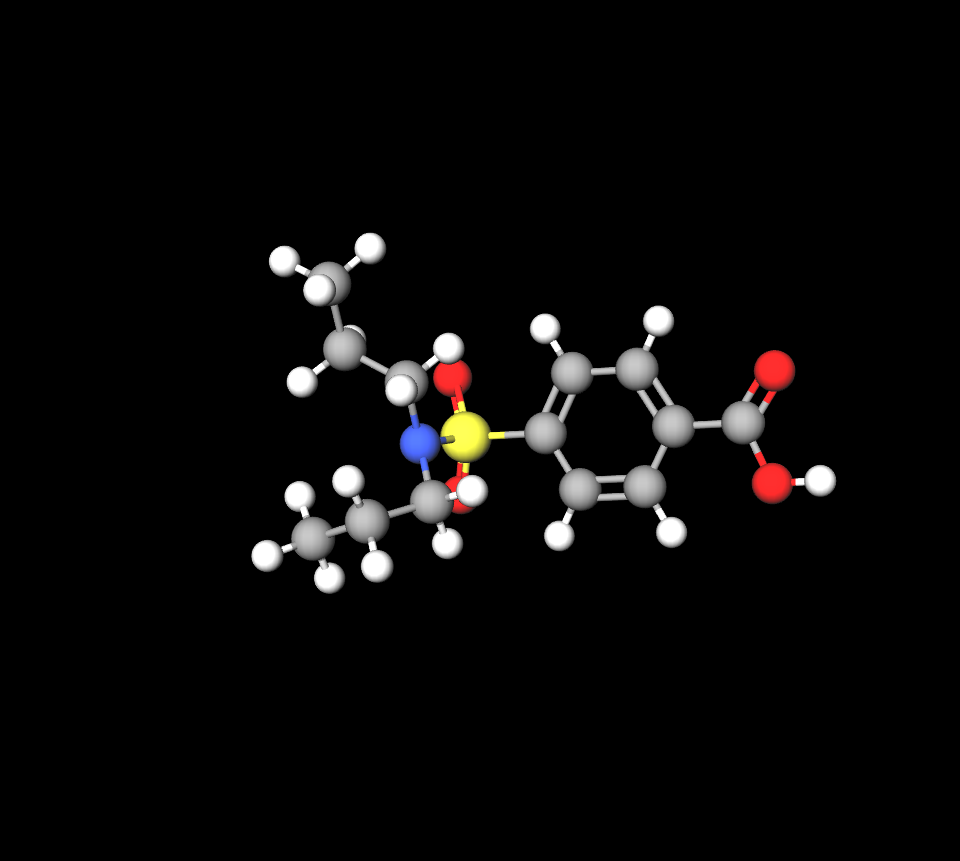
Cefadroxil generation
Cefadroxil is a type of antibiotic that works in the body when taken by mouth for treating infections caused by specific types of bacteria, like gram positive ones but may not be as effective, against gram negative bacteria.
How Cefadroxil Works: Inhibiting Bacterial Cell Wall Synthesis
Cefadroxil disrupts the formation of peptidoglycan, an essential component of bacterial cell walls, leading to cell lysis and death. Its action is highly selective, targeting bacterial cells without affecting human cells.
Probenecidâs Function: Enhancing Cefadroxil Efficacy
Probenecid slows down the removal of Cefadroxil through the kidneys, which makes it stay in the body longer and widens the time frame for its effectiveness.
Synergistic Effect of the Combination
By bringing these two agents in a blend called Dax La, it creates an impact that not just efficiently addresses infections but also lowers the chances of antibiotic resistance developing.
Probenecid and penicillin
Probenecid works by slowing down the release of penicillin in the body, which helps to maintain penicillin levels for a period of time and allows for extended breaks between doses.
Cefadroxil vs cephalexin
Patients can take cefadroxil more often than cephalexin because it is eliminated from the body at a rate and has a longer half-life compared to cephalexin.
Probenecid vs allopurinol
Probenecid is a type of medication that helps the body eliminate acid by boosting its excretion process while allopurinol works differently as it inhibits xanthine oxidase to reduce the production of acid within the body.
Probenecid vs febuxostat
Probenecid is prescribed for the long-term prevention of attacks, and febuxostat is prescribed to prevent gout flares.
Approved Uses
Primary Indications for Cefadroxil/Probenecid
Treatment of Bacterial Infections
- Respiratory infections, including pharyngitis and bronchitis
- Urinary tract infections
- Skin and soft tissue infections such as cellulitis
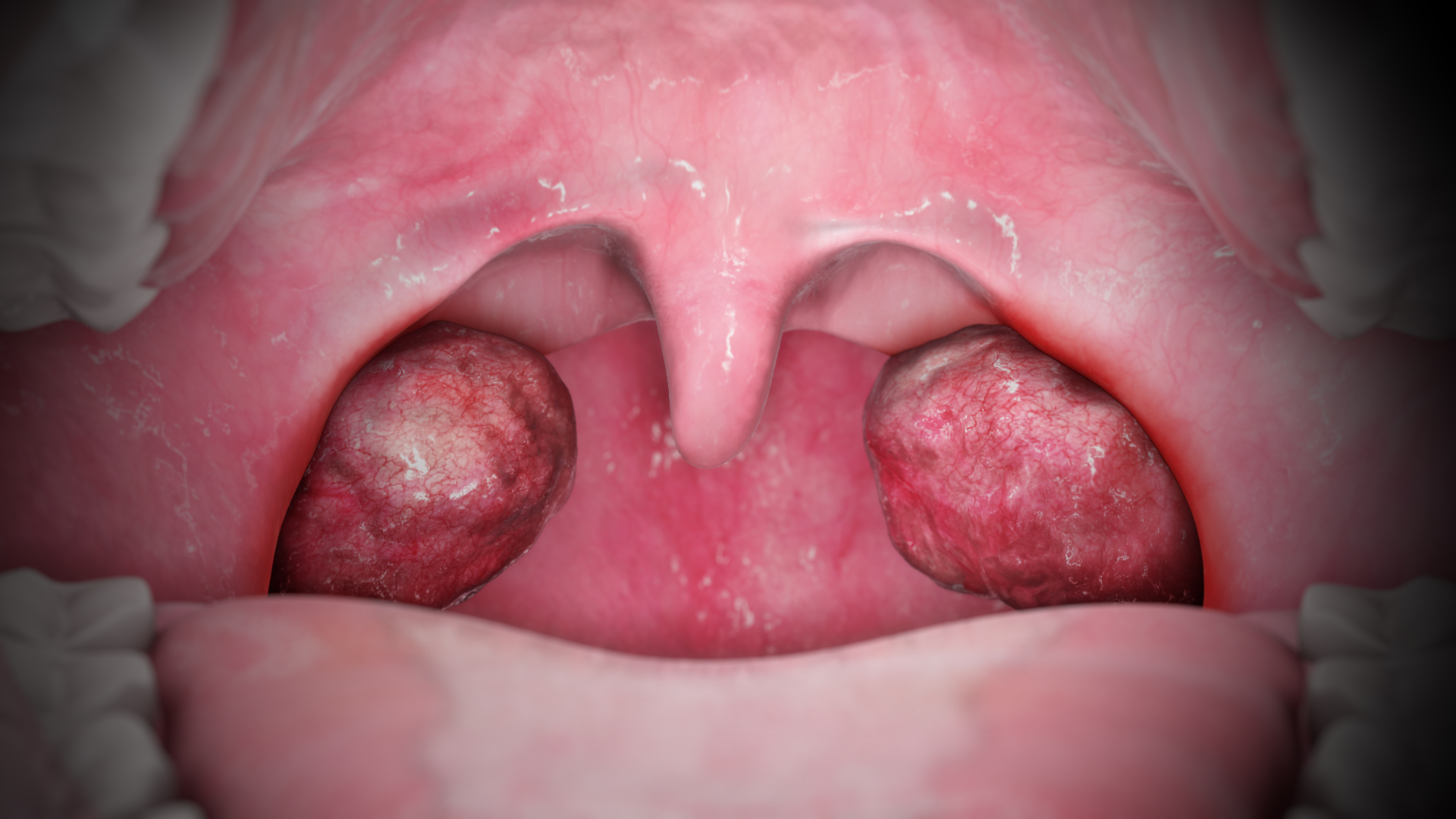
Prevention of Recurrent Infections
Its long-lasting action helps in preventing the recurrence of chronic bacterial infections, particularly in vulnerable populations.
Use in Specific Bacterial Strains
Dax La is known for its ability to effectively combat known bacteria such, as Streptococcus and Staphylococcus and E.coli to achieve treatment results.

Off-Label Uses
Potential for Use in Certain Multidrug-Resistant Infections
Experimental Applications in Prolonged Antibiotic Therapies
Preliminary studies suggest its use in long-term treatment regimens for chronic infections.
Role in Reducing Antibiotic Resistance Progression
By maintaining high drug concentrations, Dax La may help slow the emergence of resistant bacterial strains.
Emerging Clinical Research
Trials are currently being conducted to see how effective it is, in areas of treatment and to broaden its uses even more.
Dosage and Administration
Cefadroxil dose for adults
The typical adult dose is 1-2 g per day, divided into two doses. Pediatric dosing is weight-based, ensuring safety and efficacy.
Adjustments for Renal Impairment
Patients with impaired kidney function may need changes in their medication dosage to prevent effects.
Recommended Administration Schedule and Duration
Take Dax La regularly at intervals based on the severity of the infection and how well you respond to treatment.
Best Practices for Oral Consumption
- Take with food to minimize gastrointestinal discomfort.
- Ensure adequate hydration to support renal function.
Cefadroxil side effects
Gastrointestinal Symptoms
Some patients may experience mild nausea, vomiting, or diarrhea. These symptoms are typically transient and resolve with continued use.
Skin Reactions
Fatigue and Headache
Fatigue and headache are less common but may be reported, particularly in prolonged therapy.
Frequency and Severity Among Different Populations
Side effects are generally more frequent in elderly or immunocompromised individuals.
Rare and Severe Side Effects
Hypersensitivity Reactions and Anaphylaxis
Severe allergic reactions are necessitate medical intervention.
Clostridioides Difficile-Associated Diarrhea
This significant issue requires observation and prompt action to address it.
Renal Complications
Monitoring and Management of Severe Side Effects
It is important to have checkups and laboratory tests while undergoing treatment to quickly identify and address any serious side effects.
Interactions with Other Drugs
Concurrent use with certain antibiotics may enhance or reduce effectiveness, requiring medical consultation.
Impact on Anticoagulants
Dax La can potentiate the effects of anticoagulants, increasing the risk of bleeding.
Risk of Reduced Efficacy with Diuretics
The effectiveness of Cefadroxil may be compromised by using diuretics which could reduce its levels in the body.
Advice for Avoiding Adverse Interactions
- Provide a complete list of medications to the healthcare provider.
- Avoid self-medicating with over-the-counter drugs without medical approval.
Contraindications
Known Allergies to Cefadroxil or Probenecid
Individuals who have a known sensitivity to Cefadroxil or other cephalosporins are advised to refrain from using this combination medication as it may lead to reactions varying from skin irritations to serious anaphylactic shock.
Severe Renal Impairment or Dialysis Patients
People with kidney problems such as those receiving dialysis, should avoid taking this medicine because it could be harmful and affect how the body gets rid of the drug.
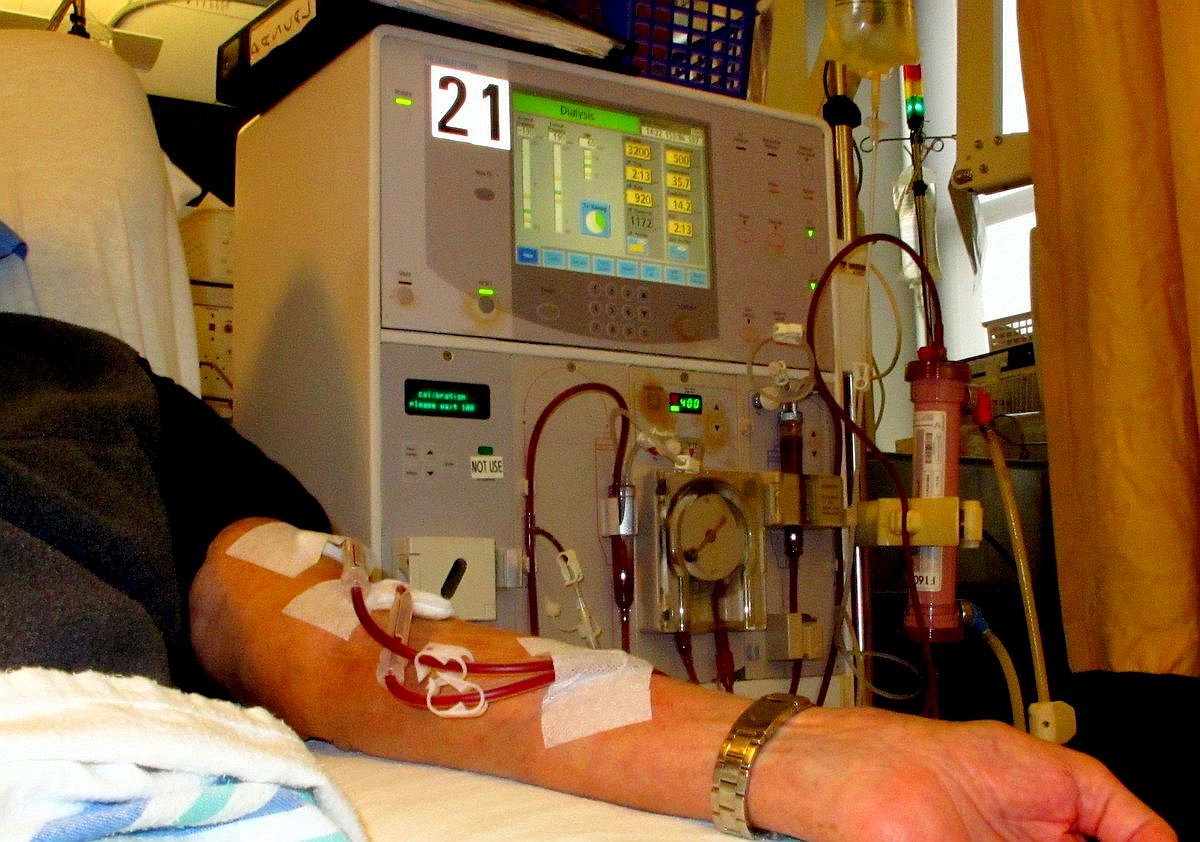
Specific Contraindications in Pregnancy and Lactation
It is advisable to exercise caution when considering the use of Cefadroxil or Probenecic, during pregnancy or breastfeeding periods due to risks involved in situations even though there is limited information indicating minimal harm to the fetus or infant; it might be wise to explore other options when unsure about safety measures.
Cross-Reactivity with Other Cephalosporins
Cross-reactivity is a concern for individuals allergic to cephalosporin antibiotics. Detailed patient history is critical to mitigate risks.
Cefadroxil warnings and Precautions
Risk of Allergic Reactions
Allergic responses may occur unpredictably. Vigilance for symptoms such as urticaria, dyspnea, and swelling is crucial.
Monitoring Renal Function During Treatment
Periodic renal function tests are recommended, especially in patients with pre-existing kidney conditions, to ensure safe medication levels.
Importance of Completing the Prescribed Course
Incomplete antibiotic courses can lead to suboptimal outcomes and antibiotic resistance. Adherence to prescribed duration is paramount.
Risks of Long-Term Use or Overuse
- Potential for gastrointestinal microbiota imbalance
- Increased likelihood of resistance development
Careful Administration
Tailored Dosing in Patients with Hepatic Impairment
Liver dysfunction requires adjusting medication doses to avoid the build-up of drugs in the body and potential side effects.
Importance of Medical Supervision in Vulnerable Populations
Close monitoring is essential for children, the elderly, and immunocompromised patients to avert complications.
Adherence to Infection-Specific Treatment Protocols
Customized treatment regimens based on infection type and severity ensure optimal outcomes.
Special Considerations for Elderly Patients
Adjustments for Age-Related Pharmacokinetics
Age-induced changes in drug metabolism necessitate lower initial doses in elderly patients.
Increased Risk of Renal Side Effects
As people grow older, they are at risk of experiencing kidney damage. This emphasizes the importance of regularly checking kidney function.

Recommendations for Dosage Modifications
Dosage adjustments based on renal clearance rates minimize risks while maintaining efficacy.
Monitoring for Polypharmacy Interactions
The likelihood of drug-drug interactions increases with polypharmacy, warranting a thorough review of concurrent medications.
Use in Pregnant Women and Nursing Mothers
Safety Profile During Pregnancy
While generally considered low-risk, the use of Cefadroxil/Probenecid should only occur if clearly necessary, following a thorough risk assessment.
Transfer of Components Through Breast Milk
Small amounts of the medication may pass into breast milk. Monitoring infants for side effects is advised.
Risk-Benefit Analysis for Maternal Use
The therapeutic benefits must outweigh potential risks. Alternative antibiotics may be explored when uncertainty prevails.
Recommendations for Alternative Treatments
Consideration of safer options, particularly during the first trimester, can mitigate potential fetal exposure risks.
Administration in Pediatric Populations
Safe Age Range for Use
Cefadroxil/Probenecid is approved for pediatric use in children older than one year, with dosage tailored to body weight.
Adjusted Dosage Based on Weight and Age
Calculating the dosage helps maintain the levels of medication effectiveness while reducing potential side effects.
Monitoring for Side Effects in Children
Close observation for gastrointestinal discomfort, skin reactions, or behavioral changes is essential during treatment.
Guidelines for Preventing Pediatric Misuse
Caregivers should securely store the medication to prevent accidental ingestion or overdose by children.
Overdosage
Symptoms and Signs of Cefadroxil/Probenecid Overdose
Typical symptoms consist of queasiness, throwing up, upset, and lightheadedness. In instances there might be issues related to nerve toxicity or kidney problems.
Emergency Interventions and Antidotes
Immediate gastric lavage, hydration, and supportive care are primary interventions. Hemodialysis may be required in extreme cases.
Long-Term Complications of Overdose
Chronic renal impairment or persistent neurological symptoms may arise in untreated cases.
Guidance for Healthcare Providers
Medical professionals need to make sure patients understand the dose and recommend that they get medical help if they experience signs of overdose.
Storage and Handling
Optimal Storage Conditions: Temperature and Humidity
Remember to keep the medicine in a place where it's not exposed to sunlight or moisture to ensure it stays effective.
Shelf Life and Stability Considerations
Following the specified expiration dates on labels is crucial to maintain the effectiveness and safety of medications.
Guidelines for Safe Handling and Disposal
- Avoid crushing or breaking tablets.
- Dispose of unused medication through authorized collection programs.
Tips for Preventing Accidental Exposure
Remember to keep medicines in containers that's child-resistant and always make sure to label them with the appropriate information.
Handling Precautions
Avoidance of Contamination During Administration
Remember to use hands or wear gloves when handling medication to maintain sterility and ensure safety.
Protective Measures for Caregivers
Care providers should make sure to wear gloves when administering medication to people, with weakened systems to avoid any unintended contact.
Cleaning and Disposal of Residues
Make sure to clean up any leftover spills or unused medication using cloths and dispose of them properly.
Importance of Following Safety Protocols
Adhering closely to the recommended protocols reduces dangers, for patients and healthcare providers alike by guaranteeing the efficient utilization of medication.
Dax La, Cefadroxil/ Probenecid FAQ
- Will cefadroxil work for ear infection?
- Will cefadroxil treat strep throat?
- Will cefadroxil work for tooth infection?
- Will cefadroxil work for a sinus infection?
- Why isn't cefadroxil used more often?
- Why we use cefadroxil?
- When does cefadroxil start working?
- Cefadroxil when to take?
- What cefadroxil 500mg used for?
- Cefadroxil what generation?
- Cefadroxil how many days?
- Cefadroxil how long to work?
- How cefadroxil works?
- Can cefadroxil treat yeast infection?
- Can cefadroxil cause a rash?
- Can cefadroxil cause yeast infection?
- Can cefadroxil treat uti?
- Are cefadroxil and cephalexin the same?
- Why is probenecid given with cefazolin?
- Why probenecid with cidofovir?
- Why probenecid is not given with aspirin?
- Why probenecid is given with penicillin?
- How probenecid works?
- Can probenecid cause gout flare up?
- Can probenecid cause kidney stones?
- Can probenecid cause steven johnson syndrome?
- Can probenecid increase creatinine?
- What are probenecid used for?
- Are probenecid and allopurinol the same?
- Will cefadroxil work for ear infection?
- Will cefadroxil treat strep throat?
- Will cefadroxil work for tooth infection?
- Will cefadroxil work for a sinus infection?
- Why isn't cefadroxil used more often?
- When does cefadroxil start working?
- Cefadroxil when to take?
- What cefadroxil 500mg used for?
- Cefadroxil how many days?
- Cefadroxil how long to work?
- How cefadroxil works?
- Can cefadroxil treat yeast infection?
- Can cefadroxil cause a rash?
- Can cefadroxil cause yeast infection?
- Can cefadroxil treat uti?
- Are cefadroxil and cephalexin the same?
- Why is probenecid given with cefazolin?
- Why probenecid with cidofovir?
- Why probenecid is not given with aspirin?
- Why probenecid is given with penicillin?
- How probenecid works?
- Can probenecid cause gout flare up?
- Can probenecid cause kidney stones?
- Can probenecid cause steven johnson syndrome?
- Can probenecid increase creatinine?
- What are probenecid used for?
- Are probenecid and allopurinol the same?
- Will cefadroxil work for ear infection?
- Will cefadroxil treat strep throat?
- Will cefadroxil work for tooth infection?
- Will cefadroxil work for a sinus infection?
- Why isn't cefadroxil used more often?
- When does cefadroxil start working?
- Cefadroxil when to take?
- What cefadroxil 500mg used for?
- Cefadroxil how many days?
- Cefadroxil how long to work?
- How cefadroxil works?
- Can cefadroxil treat yeast infection?
- Can cefadroxil cause a rash?
- Can cefadroxil cause yeast infection?
- Can cefadroxil treat uti?
- Are cefadroxil and cephalexin the same?
- Why probenecid with cidofovir?
- Why probenecid is not given with aspirin?
- Why probenecid is given with penicillin?
- How probenecid works?
- Can probenecid cause gout flare up?
- Can probenecid cause steven johnson syndrome?
- Can probenecid increase creatinine?
- What are probenecid used for?
- Are probenecid and allopurinol the same?
Will cefadroxil work for ear infection?
Cefadmin and dicloxacillin are equally effective in treating ear infections and severe boils around the ear area.
Will cefadroxil treat strep throat?
This medicine belongs to a group of antibiotics called cephalosporins and is commonly prescribed for treating a range of infections such as strep throat and skin or urinary tract infections.
Will cefadroxil work for tooth infection?
Yes
Will cefadroxil work for a sinus infection?
Yes
Why isn't cefadroxil used more often?
The side effects of cefadroxil are comparable to those of cephalexin, with diarrhea and gastrointestinal discomfort reported in around 2 to 4 percent of patients using cefadroxil.
Why we use cefadroxil?
It is used to treat bacterial infections.
When does cefadroxil start working?
You should notice Cefadroxil taking action to combat the infection within your body.
Cefadroxil when to take?
It is commonly taken either with or without food every 12 or 24 hours.
What cefadroxil 500mg used for?
Individuals often rely on cefadroxil to combat infections affecting areas like the skin surface or throat and even the urinary tract.
Cefadroxil what generation?
First-generation cephalosporin
Cefadroxil how many days?
Treatment for beta infections typically lasts for a minimum of 10 days.
Cefadroxil how long to work?
You might begin to experience improvements in your condition within the days; however, make sure to complete the treatment regimen even if you start feeling better and feel like you no longer require it.
How cefadroxil works?
It operates by eradicating bacteria or hindering their proliferation.
Can cefadroxil treat yeast infection?
Using this medication could lead to thrush or a new yeast infection in the vagina. Cefadroxil is effective in treating infections; however, excessive and prolonged use may cause a yeast infection.
Can cefadroxil cause a rash?
Yes
Can cefadroxil cause yeast infection?
Yes
Can cefadroxil treat uti?
Cefalexin is a prescribed cephalosporin antibiotic that is known for its safety and effectiveness in treating a range of bacterial infections, particularly those affecting the urinary tract.
Are cefadroxil and cephalexin the same?
Both cefadroxil and cephalexin belong to the generation of cephalosporins and are commonly prescribed for treating infections in patients. Cefadroxil is preferred over cephalexin due to its life, which allows for less frequent dosing schedules.
Why is probenecid given with cefazolin?
Treating severe cellulitis with a dose of cefazolin probenecid is an affordable and convenient option that has proven to be highly effective.
Why probenecid with cidofovir?
Probenecid is utilized to lower the risk of kidney damage by blocking the secretion in the tubules through inhibition thereby decreasing cidofovir levels in these tubules while also raising the amount of cidofovir, in the blood plasma.
Why probenecid is not given with aspirin?
Taking aspirin can reduce the acid-excreting effect of probenecid, while probenecid can raise the levels of impact of baricitinib by slowing down its elimination from the body.
Why probenecid is given with penicillin?
Probenecid is a medication that blocks the kidney's removal of penicillin through urine secretion, then the drug eliminates penicillin outright from the body system away.
How probenecid works?
The presence of these symptoms is a result of an excess of acid in the bloodstream and the medication functions by eliminating the uric acid from the system.
Can probenecid cause gout flare up?
Yes
Can probenecid cause kidney stones?
This might lead to the formation of kidney stones or other kidney-related issues in individuals.
Can probenecid cause steven johnson syndrome?
Yes
Can probenecid increase creatinine?
Probenecid has the potential to cause a rise in serum creatinine levels.
What are probenecid used for?
Probenecid is prescribed for managing gout or gout arthritis.
Are probenecid and allopurinol the same?
Probenecid functions as an agent by aiding in the elimination of acid from the body, while allopurinol acts as a xanthine oxidase inhibitor that reduces the production of uric acid within the body.
Will cefadroxil work for ear infection?
It appears that Cefalexin is equally effective as Dicloxacillin in treating external ear infections and severe boils on the upper lip region.
Will cefadroxil treat strep throat?
This medicine belongs to the cephalosporin family. It is commonly used to treat bacterial infections such as strep throat and skin or urinary tract infections.
Will cefadroxil work for tooth infection?
Yes
Will cefadroxil work for a sinus infection?
Yes
Why isn't cefadroxil used more often?
The side effects of cefadroxil are comparable to those of cephalexin, with common occurrences being diarrhea and stomach discomfort reported in 2–5 % of individuals using cefadroxil medication.
When does cefadroxil start working?
The effects of cefadroxil will begin immediately to combat the infection within your system.
Cefadroxil when to take?
It is typically recommended to take it with or without a meal every 12 or 24 hours.
What cefadroxil 500mg used for?
Certain bacterial infections in the skin, throat, and urinary tract can be treated with cefadroxil.
Cefadroxil how many days?
For beta infections, therapy should last for a minimum of 10 days.
Cefadroxil how long to work?
You may begin to notice improvement in your condition in the days; however, it is important to complete the prescribed medication regimen even if you start feeling better before finishing it.
How cefadroxil works?
It functions by eliminating bacteria or inhibiting their proliferation.
Can cefadroxil treat yeast infection?
Overusing this medication could lead to the development of a thrush or a new yeast infection in the area. Cefadroxil is effective in treating infections; however, prolonged and excessive use of it may lead to the occurrence of a yeast infection.
Can cefadroxil cause a rash?
Yes
Can cefadroxil cause yeast infection?
Yes
Can cefadroxil treat uti?
Cefalodroxil is an efficient cephalosporin that can be taken orally, offering a range of antibacterial coverage for managing urinary tract infections.
Are cefadroxil and cephalexin the same?
Both cefadroxil and cephalexin belong to the generation of cephalosporins and are commonly prescribed for treating infections in humans. Due to its life, in the body compared to cephalexins shorter duration of action cefadroxil allows for less frequent dosing schedules.
Why is probenecid given with cefazolin?
Treating severe cellulitis with a cost-efficient cefazolin probenecid regimen once a day is a viable option.
Why probenecid with cidofovir?
Probenecid is prescribed to lessen kidney damage by blocking the secretion in tubules, which helps lower cidofovir levels in the kidneys and boosts cidofovir levels in the bloodstream.
Why probenecid is not given with aspirin?
Taking aspirin can reduce the ability of probenecid to eliminate acid from the body, while probenecid can heighten the levels or impact of baricitinib by reducing its elimination from the system.
Why probenecid is given with penicillin?
Probenecid is a medication that blocks the elimination of penicillin through the kidney tubes. This action extends the presence of penicillin in the body and enables gaps between doses to be taken.
How probenecid works?
Excess uric acid in the bloodstream leads to these health issues and the medication functions by eliminating the acid from the system.
Can probenecid cause gout flare up?
Yes
Can probenecid cause kidney stones?
Some individuals might experience kidney stones or other kidney-related issues due to this factor.
Can probenecid cause steven johnson syndrome?
Yes
Can probenecid increase creatinine?
Probenecid has the ability to cause an elevation in serum creatinine levels.
What are probenecid used for?
Probenecid is commonly prescribed for managing gout or gout-related arthritis.
Are probenecid and allopurinol the same?
Probenecid acts as a medication that helps the body eliminate acid effectively by boosting its excretion process, whereas allopurinol functions as a drug that inhibits xanthine oxidase to reduce the production of uric acid in the body.
Will cefadroxil work for ear infection?
It appears that Cefacdroxil is just as effective as Dicloxacillin in treating ear infections and severe boils on the ear, nose, and upper lip area.
Will cefadroxil treat strep throat?
This medicine belongs to the cephalosporin family of antibiotics. It is prescribed for treating a range of infections, such as strep throat and skin or urinary tract infections.
Will cefadroxil work for tooth infection?
Yes
Will cefadroxil work for a sinus infection?
Yes
Why isn't cefadroxil used more often?
The side effects of cefadroxil are comparable to those of cephalexin; namely, diarrhea, nausea, vomiting, and abdominal pain have been noted in 2– 4% of individuals using cefadroxil.
When does cefadroxil start working?
As soon as you take cefadroxil, it will begin to combat the infection in your body.
Cefadroxil when to take?
It is typically recommended to take this medication either with or without food every 12 to 24 hours.
What cefadroxil 500mg used for?
Cefadroxil is prescribed to treat skin infections and those affecting the throat and urinary tract.
Cefadroxil how many days?
In cases of beta-hemolytic infections, therapy typically lasts for a minimum of 10 days.
Cefadroxil how long to work?
You may notice an improvement in your condition in the days; however, it's important to complete the course of medication even if you start feeling better before it ends.
How cefadroxil works?
It operates by eliminating bacteria or inhibiting their proliferation.
Can cefadroxil treat yeast infection?
Excessive use of this drug may result in oral thrush or a new vaginal yeast infection.
Can cefadroxil cause a rash?
Yes
Can cefadroxil cause yeast infection?
Yes
Can cefadroxil treat uti?
Cefazolin is an efficient cephalosporin antibiotic that is widely effective against various bacteria and commonly used to treat urinary tract infections.
Are cefadroxil and cephalexin the same?
Both cefadroxil and cephalexin are cephalosporins from the generation that are commonly prescribed for treating infections. The advantage of cefadroxil is that it can be taken more frequently than cephalexin due to its half-life.
Why probenecid with cidofovir?
Probenecid is utilized to lessen kidney damage by blocking the secretion in tubules, in competition and lowering cidofovir levels in the kidneys while boosting cidofovir levels in the bloodstream.
Why probenecid is not given with aspirin?
Aspirin decreases uricosuric action of probenecid.
Why probenecid is given with penicillin?
Probenecid is a medication that hinders the kidney's release of penicillin into the tubules. By blocking the penicillins discharge process, in the kidneys probenecid effectively extends the time penicillin stays in the body result in gaps, between doses needed.
How probenecid works?
When these symptoms occur, it's due to an excess of acid in your bloodstream, and the medication functions by eliminating the uric acid from your system.
Can probenecid cause gout flare up?
Yes
Can probenecid cause steven johnson syndrome?
Yes
Can probenecid increase creatinine?
Probenecid has the potential to cause a rise in serum creatinine levels.
What are probenecid used for?
Probenecid is commonly prescribed for managing gout or gout-related arthritis issues in patients.
Are probenecid and allopurinol the same?
No



